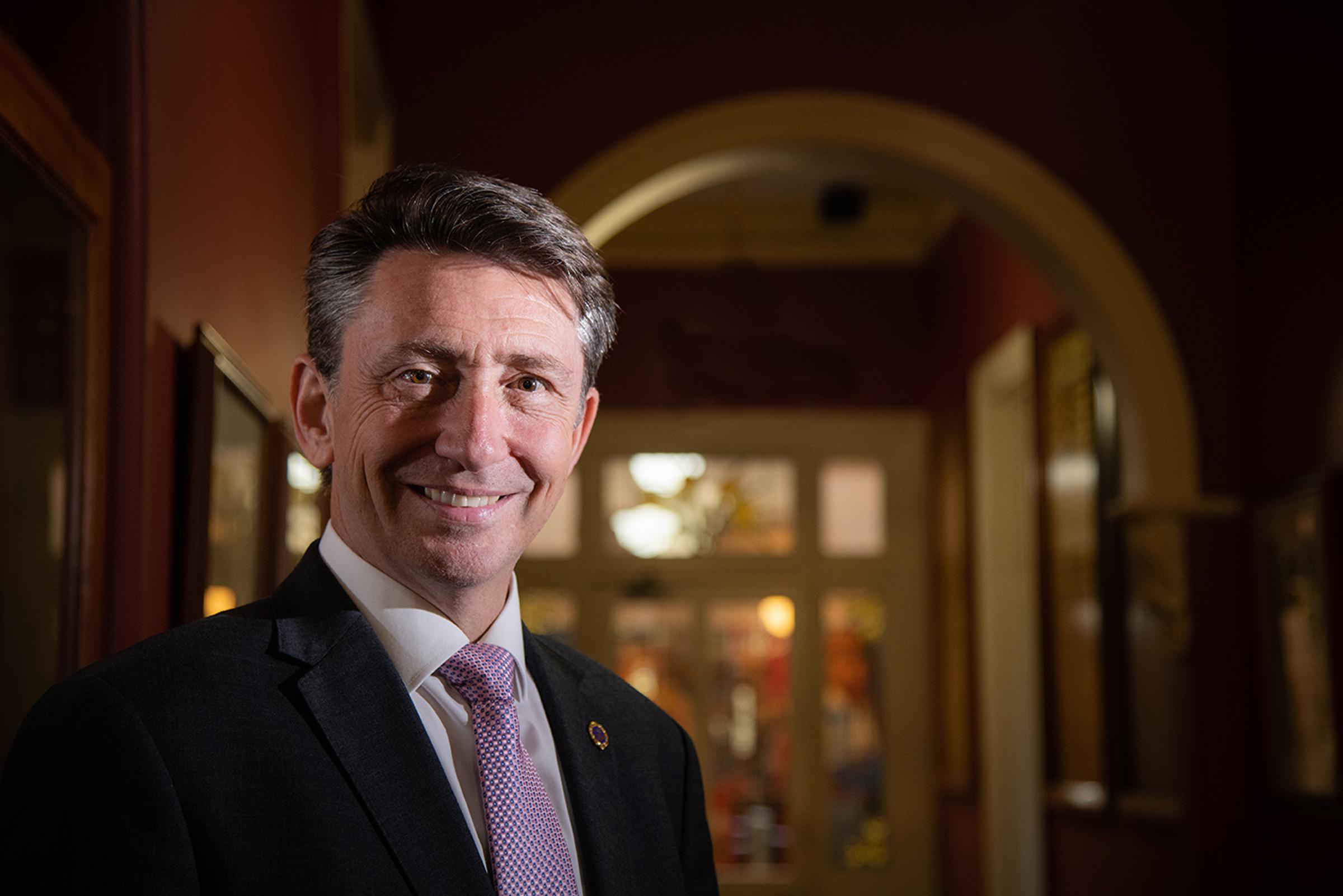Headmaster's
Message

Headmaster's
Message
Schools are not yet able to return to normal operations with Public Health Orders imposing ongoing constraints on how we operate and who we may include in end-of-year events. I would like to express my sympathies to those who, for whatever reason, are unable to participate in the events of the next two weeks. We will do our very best to provide live streams that will enable you to be a part of these special moments in your children’s lives. My hope is that 2022 will permit parents to join us for the full range of School events.
After such a brief period back on campus together to get learning back on track, there may be some parents who, for educational reasons, lament the approaching holidays. This may be related to the all too common idea that students stop learning over Christmas. The idea of the ‘summer learning loss’ is that standardised test scores in some subjects, in some situations, for some students tend to go down over the long school break. These effects are mostly confined to factual and procedural knowledge such as computation and spelling skills. Standardised tests have their place in the world of education, however they are imperfect indicators that sometimes measure what matters least about teaching and, more importantly, learning. I would encourage this community to take a wider view of education that defines academic excellence, achievement and success on a range of outcomes, some of which cannot be measured by standardised tests.
School is intended to serve a young person’s life, both now and in the post-graduation years. The capabilities students learn whilst at school should equip them to live and to continue to learn throughout their lives. Peter Gray of Boston College suggests that “maybe instead of expanding the school year to reduce a summer slide in calculation, we should expand summer vacation to reduce the school-year-slide in reasoning.” This perspective transforms the school holidays into a period of application for all that they have learned thus far in their lives. The valuable higher order capabilities students learn whilst applying what they have learned at school to real life situations are a better indicator of academic success than computation and spelling. So, whilst children aren’t going to school they are not destined to fall behind academically. They may, in fact, take leaps and bound ahead; however, what students learn over summer depends on how they spend their time.
Intellectual development continues whilst ever young people’s minds are engaged in life and especially in thinking and the solving of problems. This engagement leads to development of every possible type; cognitive, emotional, physical, social and moral. The best Summer breaks involve meaningful interactions with many people of diverse ages, backgrounds and walks of life. The best school holidays involve free time for young people to pursue their interests and passions; building or otherwise creating a tangible object from raw materials, designing and crafting a masterpiece, refining a skill or testing an hypothesis, among many other activities. Regardless of what the activity is, engagement is best when it pushes personal boundaries, tests capabilities, expands understanding and even challenges preconceived ideas.
Back to ‘summer learning loss’ and what the School recommends for the holidays in terms of academic ‘maintenance.’ The love of reading is one driver of learning. So, read to children (and young people if they’ll let you), encourage them to read and ensure your home is filled with literature they will find fascinating. Once they become a reader, their literacy will never take a backward step. The love of ideas is also a driver of learning. So, talk about ideas, read about ideas and watch video content that exposes them to new ideas. Once a new idea captures their mind and heart, there will be no stopping their engagement with it. It will take on a life of its own. Finally, the love of challenge is a driver of learning. So, for young ones, set them challenges to pursue and undertake those challenges with them. For older ones, encourage them to set themselves challenges and again, offer to undertake those challenges with them. Regardless of age, these could be personal challenges, family challenges, short challenges, multi-day or multi-week challenges. The nature of the challenge is not as relevant as the juices it causes to flow through their young bodies, minds and hearts.
Most adults remember their school holidays much more than we remember our school days. I would suggest that this is because, during these times, we were wholly engaged in life. We were attacking life; it wasn’t happening to us. So, as a community let's ensure the coming break is engaging for our young people and that we encourage them to live it to the full!
Per Ardua Ad Altiora
Mr Ian Maynard
Headmaster